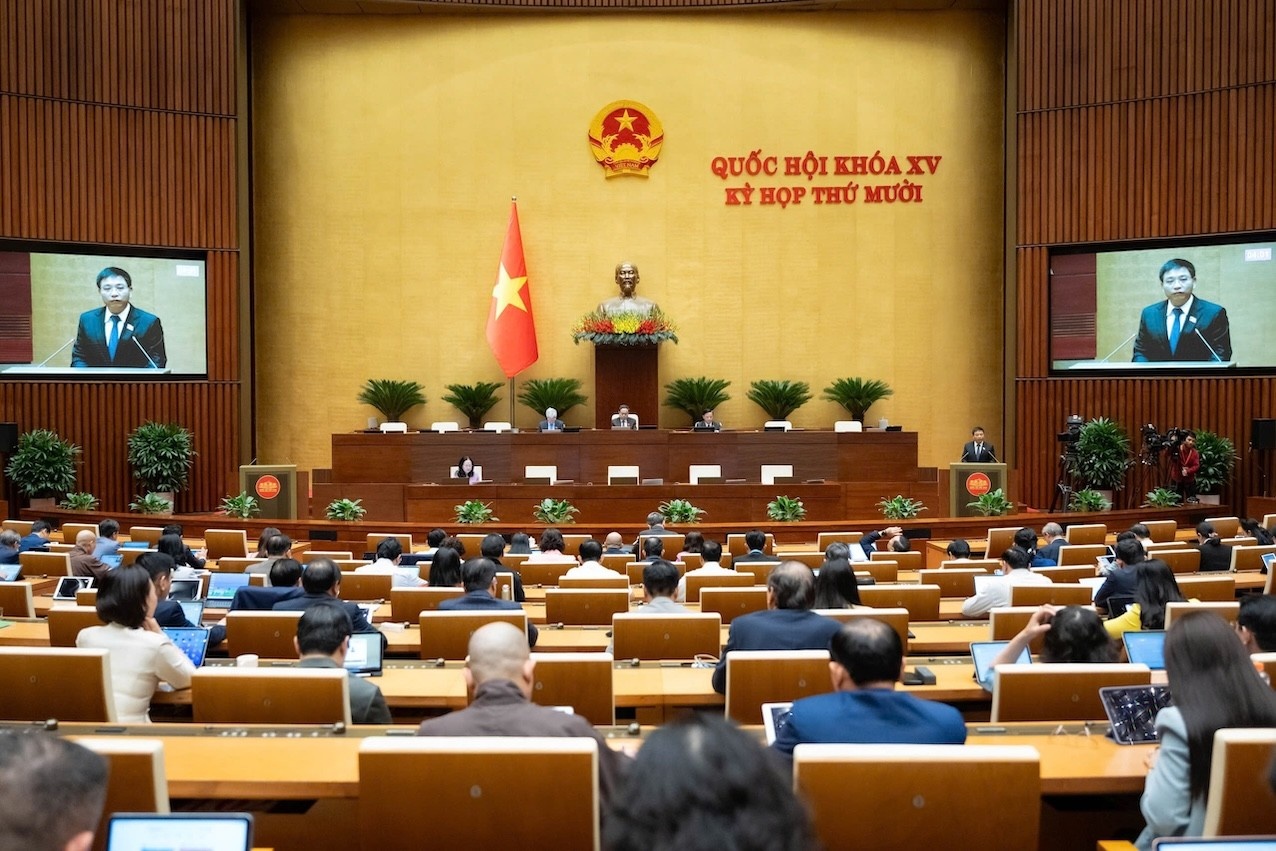The National Assembly heard reports and submissions on the draft amended Law on Investment on November 11.
Presenting key contents of the draft, Minister of Finance Nguyen Van Thang stated that the revised law simplifies, supplements, and streamlines a wide range of procedures in investment.
The objective of this amendment is to remove obstacles and simplify investment and business procedures, thereby creating a more transparent and favourable environment for businesses and citizens.
 |
| A glimpse of the NA session on November 11 |
At the heart of the draft is a proposal to eliminate 25 conditional business lines. Under this proposal, businesses operating in these sectors will no longer be required to obtain business licences as before. The list includes several notable fields such as accounting services, tax procedure services, rice exports, temporary import-re-export of frozen food products, and labour subleasing services.
Explaining this proposal, Minister Thang noted that the 2020 Law on Investment currently stipulates 234 business lines subject to licensing.
“However, upon review, the government found that many of these sectors could be effectively managed through output-based technical standards and regulations. Accordingly, shifting 25 business lines to a post-inspection mechanism is expected to lower market entry barriers and unlock resources for enterprises,” he said.
In addition to reducing business conditions, the draft law introduces several other significant changes.
One of the notable proposals is to remove the requirement for investment policy approval for outbound ventures valued at under VND20 billion ($800,000). These projects would only need to register foreign exchange transactions with the State Bank of Vietnam.
Projects valued at $800,000 or more, or those operating in conditional business sectors, would still need to obtain an Investment Registration Certificate.
The government also seeks to narrow the range of domestic projects subject to investment policy approval.
Under the proposal, this procedure would be limited to projects developing infrastructure in key sectors such as seaports, airports, and telecommunications, or those that have major environmental, defence, or security impacts.
Some cases proposed for exemption from this procedure include industrial cluster infrastructure development, mineral extraction projects (except offshore projects), and housing construction projects.
The draft also expands the scope of projects eligible for the "special investment procedure" (also known as the green channel).
This would allow projects located in industrial zones, export processing zones, high-tech parks, concentrated digital technology zones, free trade zones, and functional zones within economic zones to undergo fast-track investment procedures, regardless of sector or industry, except for major projects such as airports and seaports.
Another fundamental reform for foreign investors is a new provision allowing them to establish enterprises before obtaining approval.
The draft amended Law on Investment is expected to be debated at the National Assembly on November 27 and put to a vote on December 11.







































